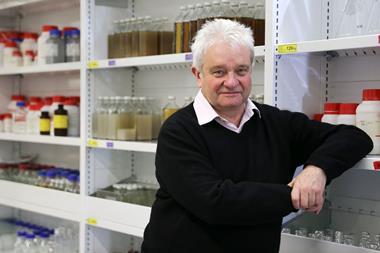Every part of government will be brought together ‘to cement the UK’s place as a global science and technology superpower’ by 2030, according to the strategy from the newly minted Department of Science, Innovation and Technology (DSIT). The Science and Technology Framework contains 10 key points outlining how this will be achieved, and over £370 million in new funding for the UK’s ‘most exciting growing’ technologies. The government also announced a further extension until 30 June 2023 of the financial guarantee provided to the UK’s Horizon Europe applicants. However, many in the science community point out that continued hesitation over association with Horizon has put the government’s ambitions at risk.
The framework is the first major piece of work from the DSIT and will be implemented immediately. It will focus on strategic technologies critical to the UK, attracting global talent and boosting private and public investment in R&D, among other things.
The plan brings together responsibility for five ‘transformational’ technologies into one single department for the first time. There is up to £250 million of new funding for three of these – quantum science, artificial intelligence and engineering biology – with potentially more to come for semiconductors and future telecoms.
It will also provide up to £50 million to spur co-investment in science from the private sector and philanthropists, £50 million to the world class laboratories fund to improve facilities and £10 million to the UK innovation and science seed fund (which will now total £50 million) to boost start-ups. It also plans to test different funding models, such as large-scale, tightly focused, non-profit ventures to open up new funding streams.
‘There are hopeful signs that this framework will be a bit different,’ says Kieron Flanagan, professor of science and technology policy at the Alliance Manchester Business School. ‘It’s not transformative, but it’s a bit more realistic than previous policy offerings and makes a good starting point. This doesn’t mean that politicians will be able to deliver on it – we will have to wait and see – but potentially this seems to contain more joined-up thinking.’ He adds that there are ‘tentative hints’ on coordinating government departments on science and technology. ‘The laissez faire approach of the past – buying technology from the global market as needed – is widely felt to be untenable in the current geopolitical climate,’ he notes.
Most in the community view the framework as a positive first step but consider full UK participation in Horizon Europe as key to long-term stability for the sector. ‘Association to Horizon Europe will accelerate achievement of the 10 priorities the government has set,’ said Sarah Main, executive director of the Campaign for Science and Engineering. ‘It does not preclude an ambitious global position for the UK in research and innovation, but in fact enhances and enables it.’
Tim Bradshaw, chief executive of the Russell Group, agreed. ‘In addition to investment, collaboration is the other vital ingredient for world class research. Now the political roadblocks that have held up the UK’s association to Horizon Europe have been removed [pending approval of the Windsor Framework], the government’s top priority should be to finalise the agreement that was put in place over two years ago.’
‘It is strange that Horizon is not mentioned in the framework when it now seems within grasp,’ adds Flanagan. ‘The government appears to be going a bit cold on it, but we could be mis-reading the signals.’
Diversifying research in the UK
The government has also acknowledged that it needs to increase diversity in the research and innovation (R&I) workforce, improve research culture and focus on attracting and retaining talent. A DSIT-commissioned survey found the R&I workforce is still disproportionately male, that research bureaucracy in academia is high and that ease of international mobility matters.
The survey, which had just over 7500 respondents, gives a snapshot of the country’s R&I workforce, the first to include all sectors including those doing core R&D activities, such as basic research, applied research or experimental development, those responsible for innovation around a product or service, as well as technicians, engineers, and leaders and managers of research and innovation teams. Four-fifths of respondents were engaged in applied research.
The results show that 71% of the total R&I workforce are male. This rises to almost 80% in the private sector but falls to 60% in higher education. Other findings include that three-quarters of respondents believe people and communication skills are the most important skills for their job, followed by specialist and technical knowledge (67%) and leadership (61%). Respondents rank further training and development in commercial skills their highest priority (38%), followed by specialist skills (37%) and learning to use new technology (37%).
Just over half of respondents reported having worked outside the UK during their career, and a further 32% had considered doing so. Almost 30% said they would consider working outside the UK in the next five years, while 41% said they would be unlikely to.
Over a tenth of those surveyed were not British, and another tenth held dual citizenship. The main reason for leaving the UK for both British and non-British citizens was better pay or benefits (49%) and, for British citizens, opportunities to work on a particular topic (43%), better research facilities/infrastructure (38%) or better opportunities in a particular industry or discipline (37%).
The most frequent reasons non-British R&I workers gave for deciding to stay in the UK were the opportunity to work on a particular topic (41%), research facilities/infrastructure (40%), opportunities for career progression/development (37%), working with expert colleagues (34%) and UK culture/lifestyle (34%). However, they faced obstacles related to pay and benefits, maintaining a standard of living, and immigration and visa requirements.












No comments yet